
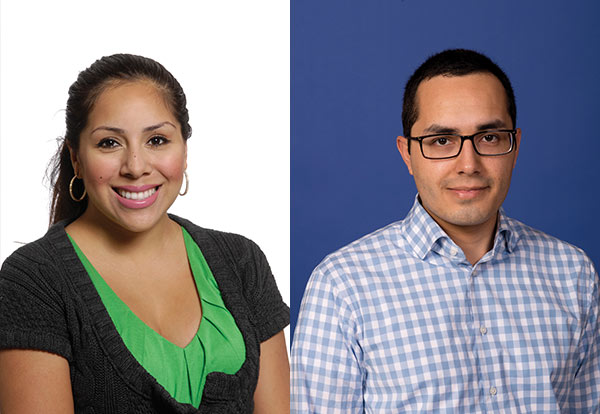
School-community collaboration is a critical key to helping youth receive proper mental health treatment, according to Victor Villarreal and Felicia Castro-Villarreal, UTSA educational psychology faculty.
In a recent paper published in “Intervention in School and Clinic,” the UTSA researchers described ways that schools and community mental health providers can work together to provide effective and comprehensive mental health services to K-12 students.
In 2013, the Center for Disease Control and Prevention released a report stating that few of the 20 percent of children with mental health challenges actually receive treatment services. In fact, less than half do. Of the students who do receive services, a majority receive them at schools.
However, Villarreal and Castro-Villarreal found that many schools are ill equipped to properly treat mental health issues, such as mood disorders, which require specialized services. In addition, school-based mental health professionals, such as school psychologists or counselors, are often stretched thin and assigned more cases than industry standards suggest are manageable.
At the same time, the researchers found that looking outside schools for care also presented challenges for families. Limited access to affordable resources and the perception of mental health treatment often prevented families from pursuing the services their children needed.
To mitigate these challenges, Villarreal and Castro-Villarreal recommend that school professionals serve as a critical bridge between families and community mental health providers. They say that schools can also share educational resources regarding the benefits of mental health treatment and available community services.
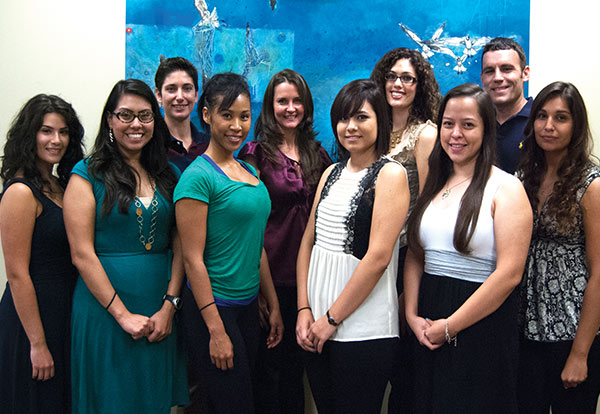
Eight students from the College of Education and Human Development walked the stage and graduated last May as part of the first cohort of students from the UTSA Coordinated Program in Dietetics (CPD). Each student received both a Bachelor of Science in Dietetics and Nutrition and a Master of Dietetics Studies.
“It feels really exciting and bittersweet to know this first group of students is graduating,” said Dr. Sarah Ullevig, assistant professor of dietetics and nutrition. “It just seems like the last three years have flown by from getting it started at UTSA to graduating the first class.”
The program, which is housed in the Department of Kinesiology, Health, and Nutrition, was established in May of 2012 by Dr. Carmen Roman-Shriver, retired associate professor. They admitted their first cohort of students in the fall of 2013.
“One of the most rewarding aspects of being in the first graduating cohort of the program is building relationships with dietitians across San Antonio,” said Tracy de Leon, CPD graduate. “This was the first time that dietetic interns from UTSA were able to work with nutrition professionals. As the first cohort, we laid out the foundation for a partnership between each facility and students in the program.”
The program, which received full accreditation in 2013 from the Accreditation Council for Nutrition and Dietetics, begins course work in the students’ junior year of study. Students enrolled in the program earn a bachelor’s degree and, subsequently, a master’s degree.
“This cohort has paved new roads for the dietetics program,” said Ullevig. “I hope these graduates follow their passion in dietetics and are open to opportunities presented to them that they might not realize they would like. I am happy for all of them.”
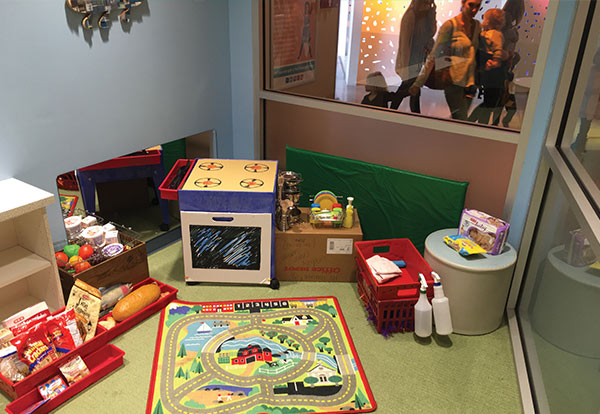
The UTSA College of Education and Human Development’s Department of Interdisciplinary Learning and Teaching (ILT) is bringing education research to the community through a partnership with the DoSeum, the children’s museum in San Antonio.
The partnership, which brings together local families, DoSeum staff, and ILT students and faculty, is part of the National Living Laboratory initiative that aims to make research accessible by educating the community about what education research is, how it is conducted, and why it is beneficial.
“The hope is that with this research, there is a constant connection between the college and the DoSeum,” said Dr. Zaid Haddad, ILT assistant professor. “The DoSeum serves as a place where our students are able to learn and where the families are able to learn about research. It also serves as a tool for our doctoral students to get their hands dirty and answer their own questions through research.”
“Our partnership allows us to more powerfully live out our core competencies of being a resource, convener, and laboratory for kids, their caregivers, and local educators,” said Ryan Smith, vice president for education at the DoSeum and UTSA alumnus. “The Living Laboratory partnership, in particular, allows us to provide resources to child caregivers by sharing research with them on early learning that they can apply to their work with their child or children.”
At the DoSeum, the Living Laboratory site is called Rowdy’s House. For four weeks during the spring 2016 semester, ILT faculty and students conducted two pilot studies concurrently in Rowdy’s House. The first of the two studies focused on understanding how children work and play in pairs. The second study looked at gender and toy selection.
The results from the pilot studies will be shared with the DoSeum education staff, the college, and the community.
“At the end of this all, we are hoping to publish our research and bring our students into the publication process as coauthors,” said Haddad. “We really want to show others that the Department of Interdisciplinary Learning and Teaching is doing important research.”
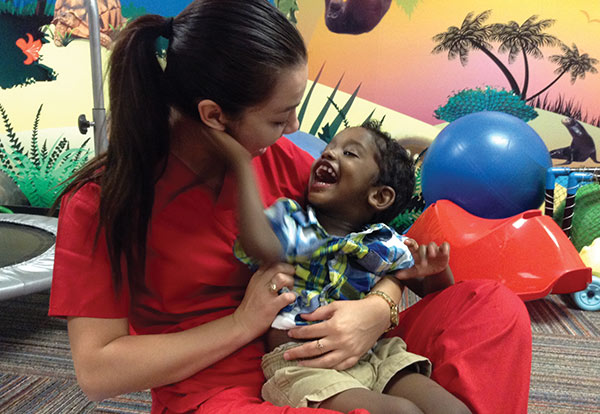
Researchers at UTSA have partnered with The Children’s Hospital of San Antonio and the Autism Treatment Center – San Antonio to form the San Antonio Applied Behavior Analysis Project. The project aims to provide easy access to top-tier applied behavior analysis services to individuals with autism and developmental disabilities in the San Antonio area.
“UTSA has already established itself as a leader in providing ABA access to the San Antonio community,” said Leslie Neely, assistant professor of educational psychology, who leads the project on behalf of UTSA. “Through this partnership with the Children’s Hospital of San Antonio and the Autism Treatment Center, we are taking another important step toward ensuring that children in need and their families receive the top-tier services that can change their lives for the better.”
The SAABA Project’s first major initiative will be establishing a new Autism Treatment Center clinic on-site at The Children’s Hospital of San Antonio. The site will provide direct ABA services to children with autism and developmental disorders, serve as a training ground for UTSA students, and help educate parents and practitioners.
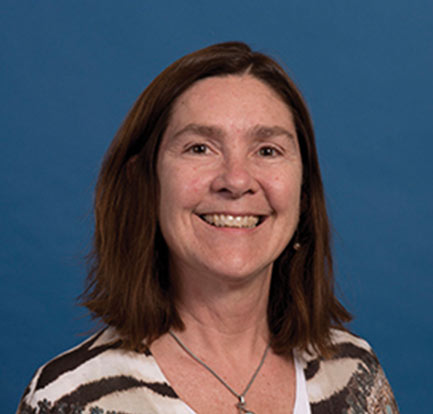
The UTSA College of Education and Human Development (COEHD) recently named Dr. Juliet Langman, professor in the Department of Bicultural-Bilingual Studies, as the new associate dean for Graduate Studies. Langman began her role in COEHD’s senior leadership on Sept. 10.
As associate dean, Langman is responsible for overseeing the college’s graduate programs. Currently, the college has the largest enrollment of graduate students in the university and offers four doctoral programs, eight master’s programs, and several professional certifications and graduate certificates.
“I am both excited and honored to have been selected as the new associate dean for Graduate Studies,” said Langman. “Having the opportunity to work with a larger number of programs, and to support graduate student growth has been one of my strong interests throughout my academic career.”
In her new role, Langman plans to support departmental faculty in improving existing programs and working towards developing new graduate programs.
“I also hope to find creative ways to increase graduate student funding, linking such support with additional research and practical experience support that will help to make our graduates even more prepared for achieving their career goals,” Langman said. “I would like to see the COEHD Graduate Studies Program continue to be responsive to local needs in the community, be consistently moving towards enhancing program quality, balanced with increasing graduate enrollment in sustainable ways.”
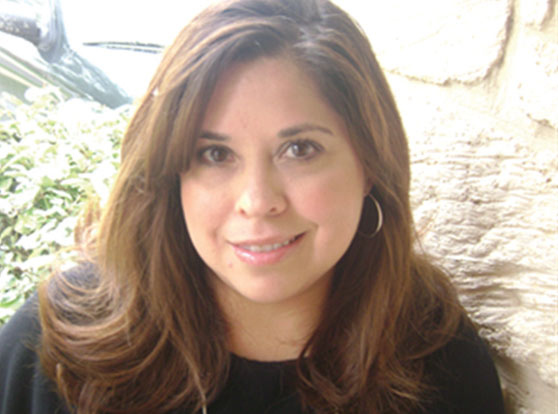
The Department of Kinesiology, Health, and Nutrition in the College of Education and Human Development recently named Dr. Liset Leal Vasquez as the new director of the Coordinated Program in Dietetics (CPD). She began her role as director in June.
“As the new director of the Coordinated Program in Dietetics, I am humbled by this honor to lead this program and build on the foundation set by the previous program director,” said Vasquez.
Vasquez comes to UTSA from Texas A&M University San Antonio, where she served as a faculty member in the Department of Counseling, Health, and Kinesiology. She received her doctoral degree from Texas Women’s University and her master’s degree from UTSA.
“I consider myself a forward thinker with experience in leadership, relationship building, and strategic planning,” said Vasquez. “My experience will help to position our CPD program in preparing new leaders to play an important role in the field of dietetics and nutrition.”
In her new role, Vasquez will oversee the program’s students, faculty, and curriculum. She is also responsible for developing partnerships with area organizations in order to provide the CPD students with opportunities to learn in multiple settings.
“From a community perspective, the CPD program will seek opportunities to partner with organizations that are committed to serving underrepresented populations,” said Vasquez. “CPD students will have the direct opportunity to engage in real world experiences and to find sustainable solutions that improve nutrition and health.”
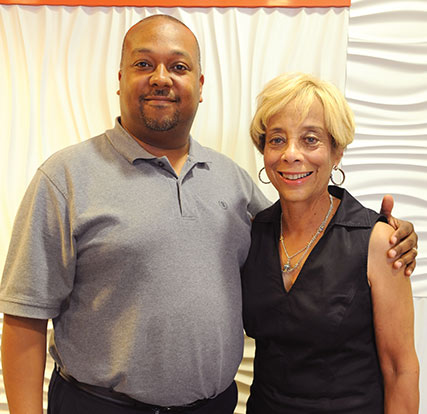
The UTSA College of Education and Human Development recently named Karla Broadus, senior lecturer in the Department of Interdisciplinary Learning and Teaching, as the new director of the African American Studies (AAS) program. She began her role as director in July.
“As a member of the UTSA family both as a non-tenure track faculty and alumni, it is an honor to be the new African American Studies director,” said Broadus.
As director, Broadus oversees the program’s students, faculty, and courses. In addition, she will also coordinate UTSA and community events throughout the year to bring awareness to the program and field of study.
“I am very excited about Professor Broadus being named as our new director for the AAS program,” said Dr. Michael Jennings, associate dean of the Consortium for Social Transformation. “She has a wealth of experience working with undergraduate students at UTSA and a strong track record as both a faculty member in COEHD and a recognized businesswoman in the local community.”
The AAS program, which is housed in the college’s Consortium for Social Transformation, offers an 18-hour minor in African American Studies open to all UTSA students.
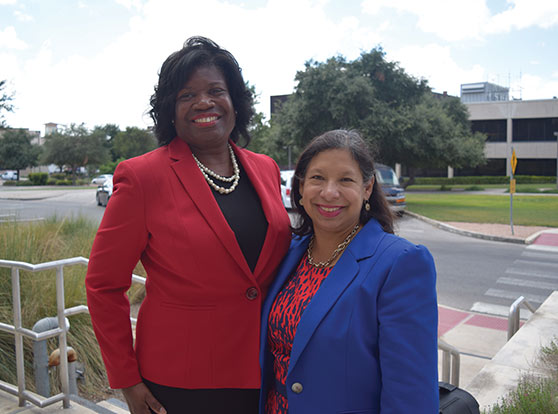
Dr. Theodorea Berry, associate professor in the Department of Interdisciplinary Learning and Teaching, and Dr. Mariela Rodriguez, associate professor in the Department of Educational Leadership and Policy Studies, were recently named to leadership positions in the UTSA Graduate School.
Berry was named associate dean of Academic Affairs and director of recruitment and engagement for the Graduate School. In this role, Berry is responsible for overseeing the Graduate School’s recruitment and engagement efforts in addition to developing new programs and academic policies.
“It is an honor to be named associate dean of Academic Affairs and director of recruitment and engagement for the Graduate School,” said Berry. “I am thrilled to be able to serve in this capacity for the university and, most importantly, for our students.”
As an associate dean, Berry hopes to increase the visibility of the university’s graduate programs and develop policies that support graduate student academic development. She has already been working on projects connected to academic policy and with the college’s graduate recruiters.
“I am most excited to engage in supporting and promoting policy that focuses on the well-being and success of our graduate students,” said Berry. “I am also excited about promoting our graduate programs locally, nationally, and internationally.”
Berry joined the university in 2013 and previously served as the director of the African American Studies program and a graduate advisor of record for her department’s doctoral program. She received her doctorate from National-Louis University in curriculum and social inquiry.
Rodriguez was named associate dean and director of Teaching, Learning, and Professional Development. As an associate dean, Rodriguez works with the Student Success and Professional Development team and the development of graduate student academic and professional development programs.
“I feel honored to have been appointed as an associate dean in the graduate school and to work with a dynamic group of people,” said Rodriguez. “Vice Provost and Dean of the Graduate School, Dr. DeBrenna Agbenyiga, has an innovative vision for the Graduate School and I’m excited to do my part to fulfill that vision.”
Her role also includes coordinating sessions related to excellence in teaching and learning for teaching assistants and graduate students interested in university teaching careers. She has also led efforts to help establish the Graduate Student Professional Development Center.
“I am privileged to be part of an innovative team that is fostering a top-tier community for graduate students,” said Rodriguez. “My goals for this position focus on providing a supportive space and network for UTSA graduate students that promotes their professional growth inside and outside the classroom. I want to collaborate with faculty members and graduate students to design a college teaching certificate.”
Rodriguez has been a faculty member in the Department of Educational Leadership and Policy Studies since 2004. She has served as an assistant department chair, and as the K-12 educational leadership program graduate advisor of record for both the master’s, and doctoral degrees. Rodriguez received her doctorate degree from New Mexico State University in educational administration.
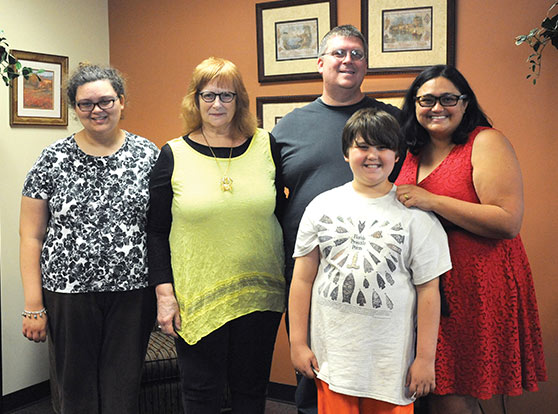
The family of the late Dr. Paul Westmeyer, including his daughter, grandson, and great grandchildren, visited the College of Education and Human Development’s Dean’s Office this past summer. Westmeyer served as the college’s associate dean for Graduate Studies and Research until his passing in 2006. His wood carving work can be found displayed in the Main Campus Dean’s Office.